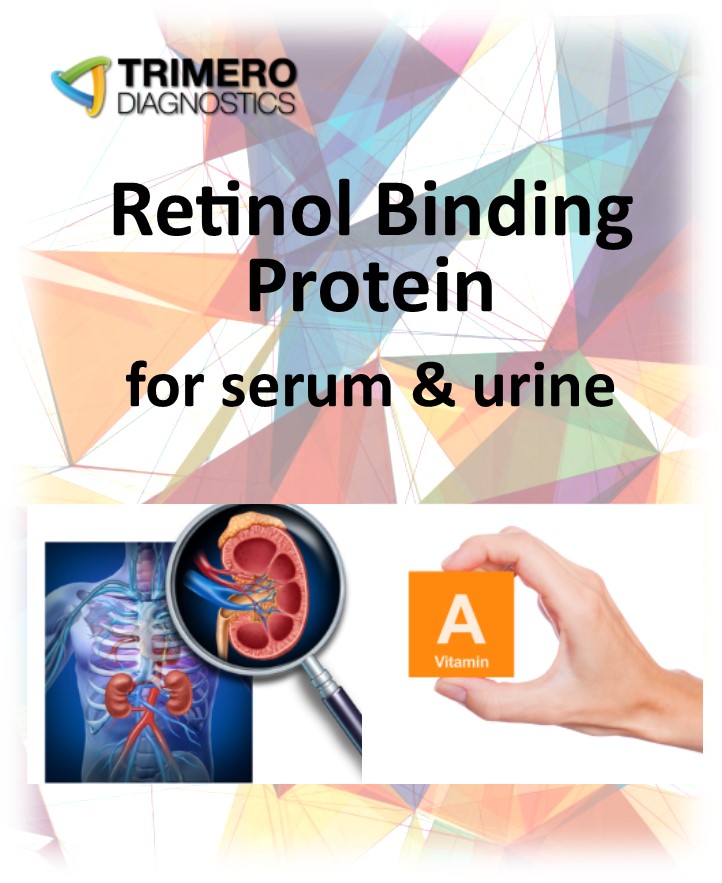Retinol-Binding Protein (RBP) assays, in serum and urine, for nephelometers and clinical chemistry analyzers
TRIMERO Diagnostics offers Retinol Binding Protein IVD CE marked assays, for serum and urine samples, available for Beckman Coulter’s IMMAGE® nephelometers and the most popular Clinical Chemistry analyzers present in the market.
Retinol Binding Protein, usually known by the acronyms RBP or RBP4, is a low molecular weight protein (21 KDa), produced in the liver and adipose tissues.
In plasma, for the most part RBP is bound to Prealbumin. The complex works as a solubilizer and carrier system of vitamin A (Retinol) to specific receptors in the tissues, and at the same time prevents its loss from oxidation and glomerular filtration, substantially increasing its serum half-life. The fraction of free RBP (<10%), not bound to Prealbumin, has a short half-life in serum given that it passes freely through the glomerular membrane. In normal situation, the RBP filtered by the glomerulus is almost completely reabsorbed by the proximal renal tubules, where it is catabolized, and then only very little amount appears in the final excreted urine. RBP is a sensitive marker of undernutrition and the monitoring of its serum concentration allows the monitoring of nutritional status. Decreased RBP serum and plasma levels are also observed in the event of hypovitaminosis A, tubular nephropathies, hepatocellular insufficiency or severe or acute inflammation. An increase in RBP can occur in different disorders like obesity, metabolic syndrome, glomerular renal failure, type 2 diabetes or steatosis. Urinary RBP results a good marker of tubular dysfunction, due to any cause or pathology, given its good sensitivity, stability and high dynamic range. Other TRIMERO’s available assays for nephelometry and turbidimetry include: KLoneus® Free Light Chains (FLC) for serum and urine, Serum Amyloid A, C1q Complement, C5 Complement, Factor B (C3 Proactivator), C1 (Esterase) Inhibitor, IgD Immunoglobulins, Soluble Transferrin Receptor (sTfR), Hemopexin, Cystatin-C for serum and urine, A1-Microglobulin, Beta-2 Microglobulin for serum and urine, Kappa and Lambda Light Chains for serum and urine.





